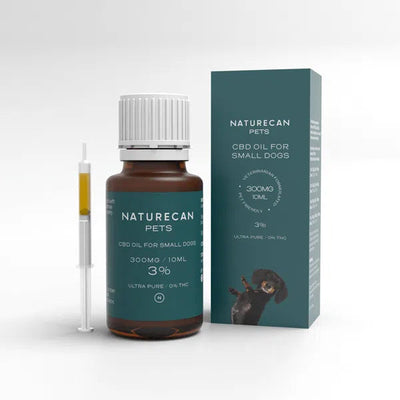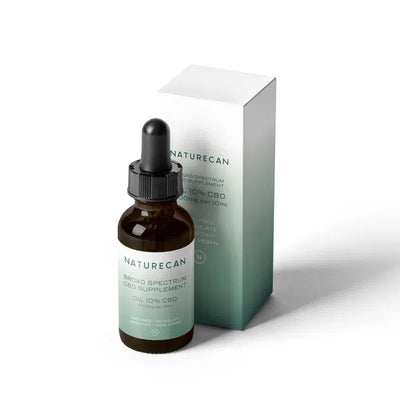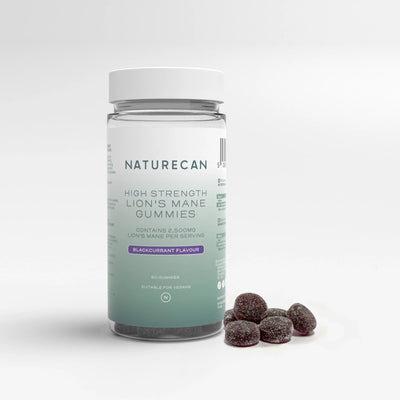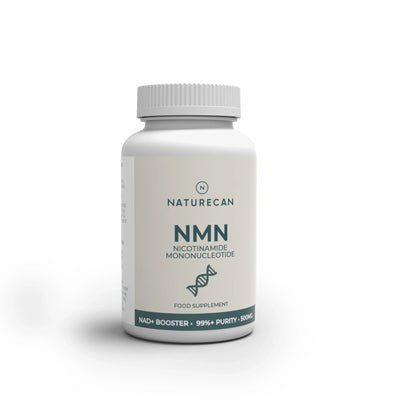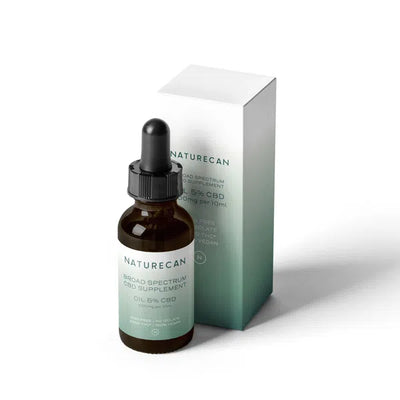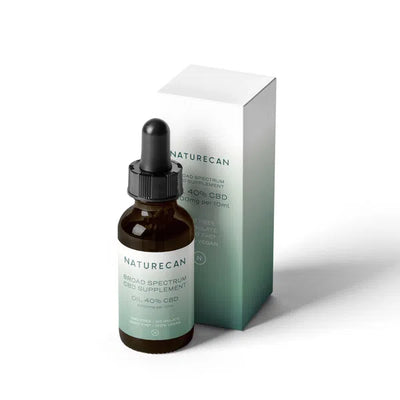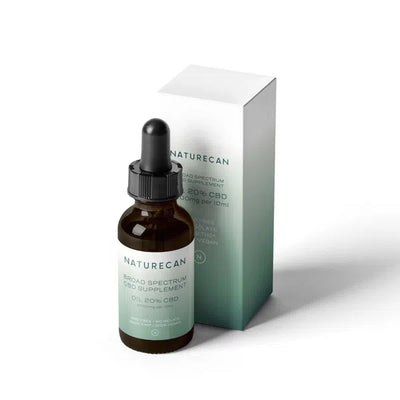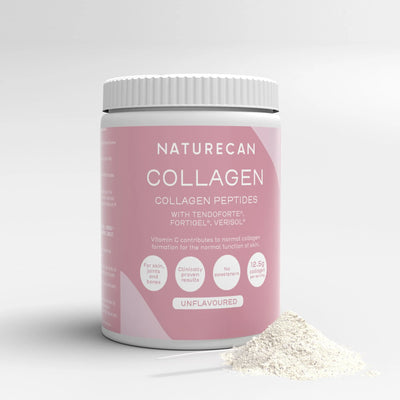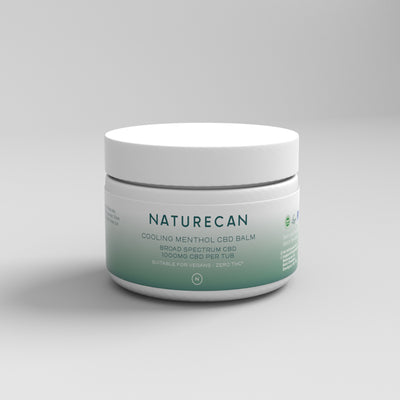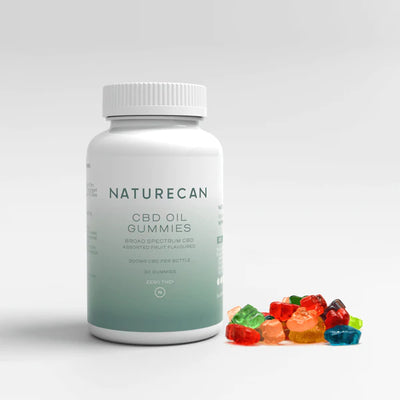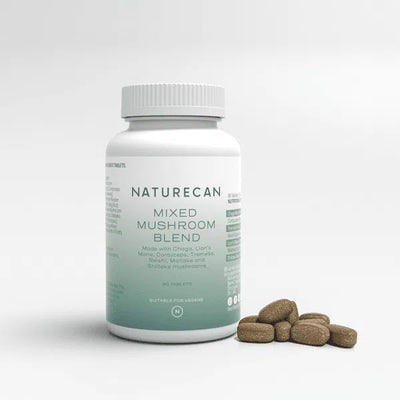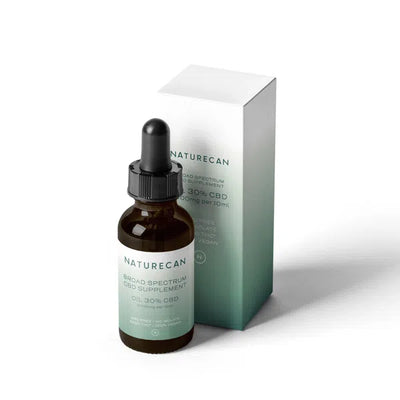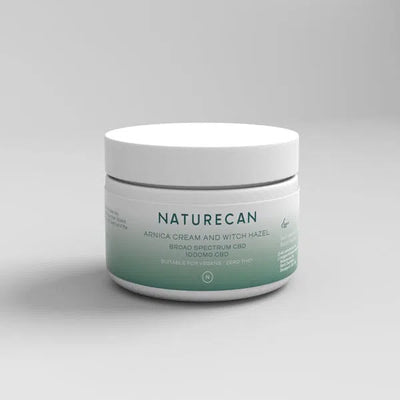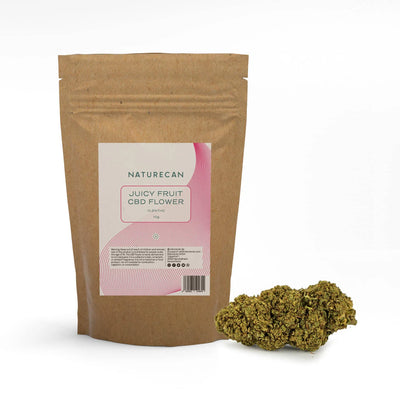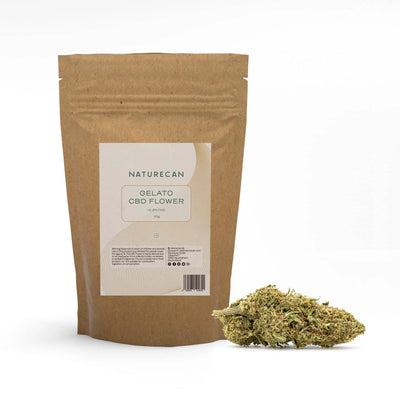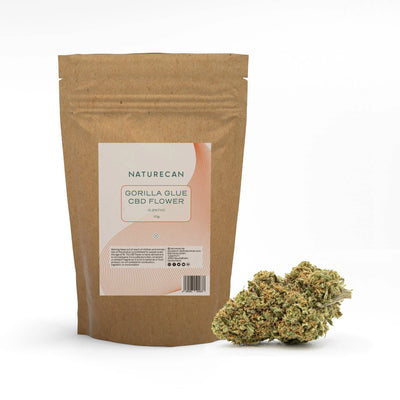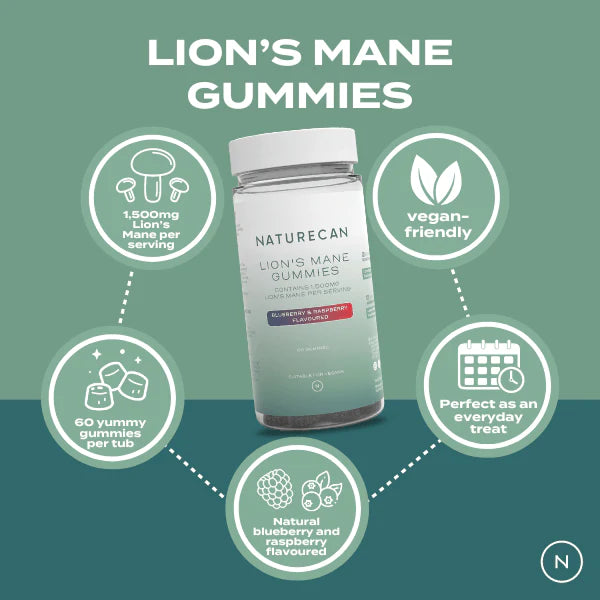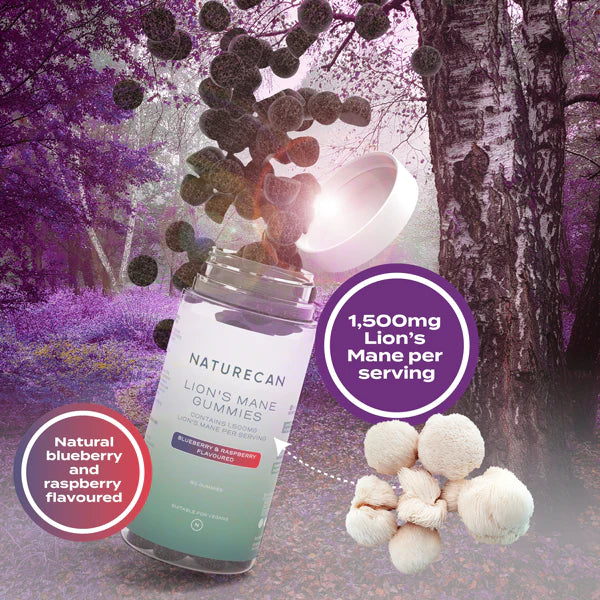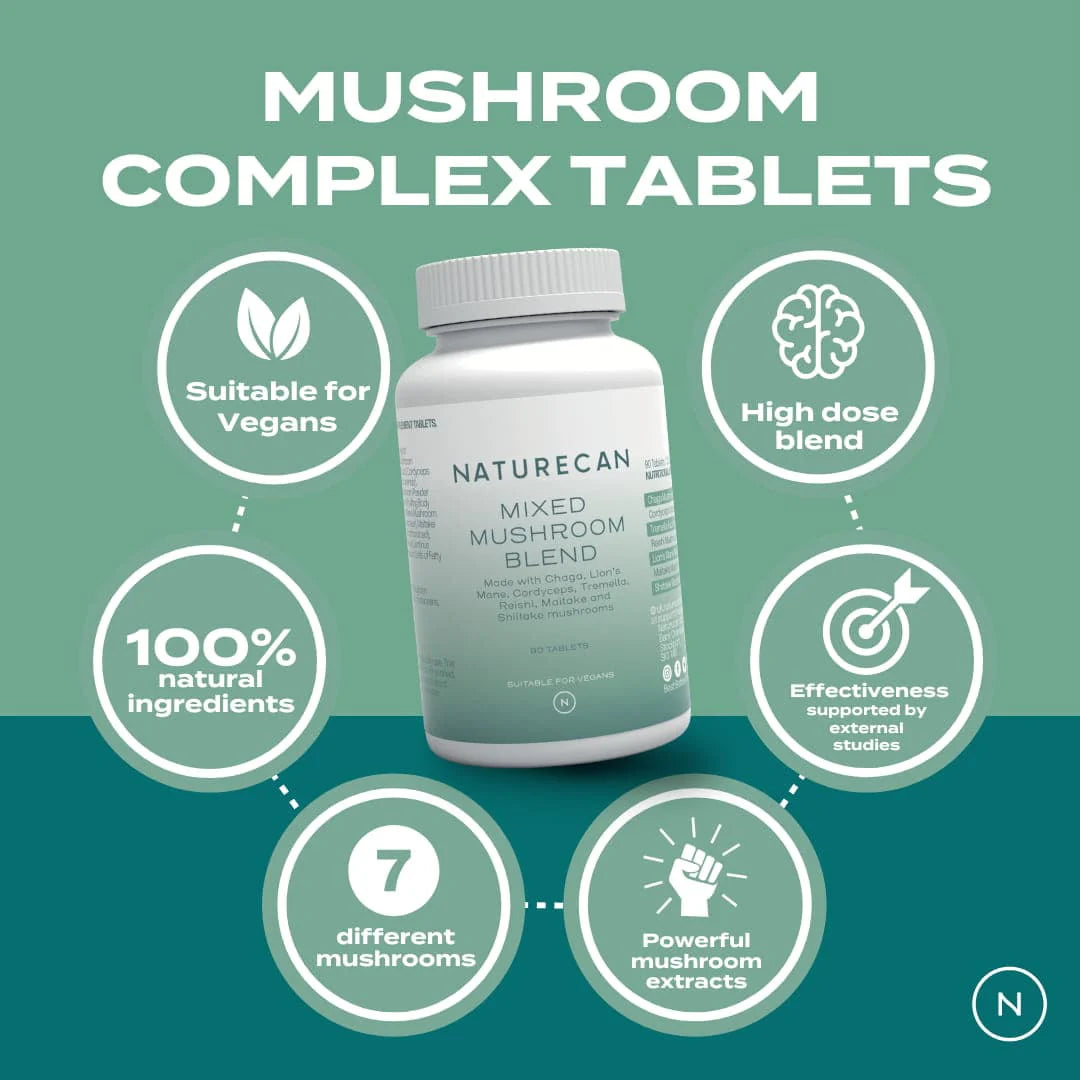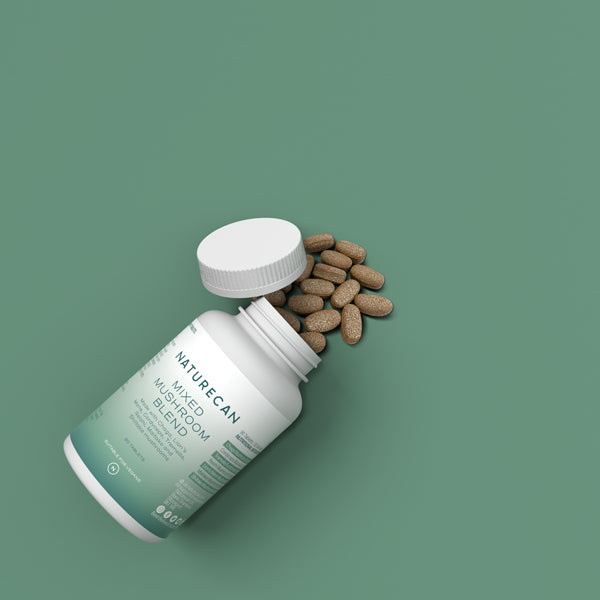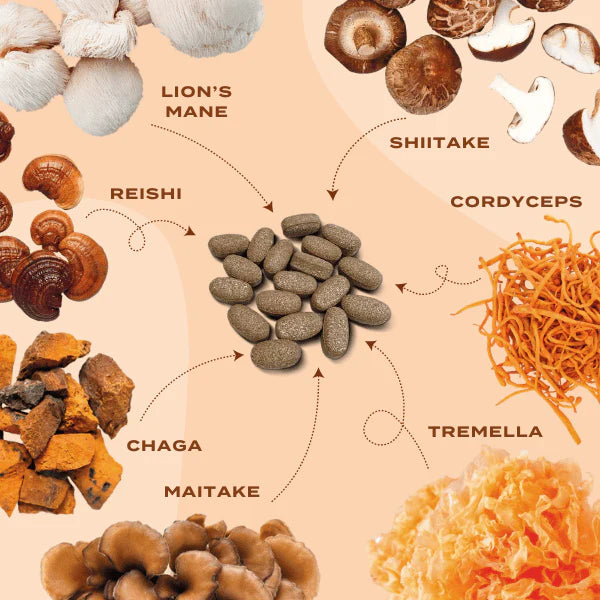What is Lion's Mane and what are their potential benefits

Lion's mane mushrooms, a unique mushroom with cascading spines resembling the mane of a lion, has been a staple in traditional medicine for centuries. But what is Lion’s Mane, and what are its potential benefits?
Native to the Northern Hemisphere and now gaining traction in the UK, it is not just a culinary delight but a promising potential remedy for various health concerns. Its historical significance spans various cultures, where it was revered not just for its taste but also for its therapeutic properties.
Today, as the world leans towards natural remedies, Lion's Mane mushroom stands out as a beacon of hope for many seeking holistic health solutions.
What is Lion's Mane?
Known as the superfood of the fungi kingdom, Lion's Mane is a mushroom that evolves in hardwood trees' cold regions. It’s renowned for its potential cognitive health benefits and fluffy, distinctive white spines.
Deep diving into this voracious fungus, the Lion's Mane mushroom commands a unique spot in both traditional Chinese medicine and modern health research. Its intriguing ability to potentially promote brain health catapults the mushroom into a realm of fascinating botanical study.

Historical and Cultural Significance of Lion's Mane
Lion's Mane has a rich history that dates back centuries. In traditional Chinese medicine, it was revered for its ability to nourish the gut and the brain.
Ancient practitioners believed in its power to boost cognitive functions and improve digestive health. In Japan, it was often consumed in teas and soups, not just for its unique flavour but also for its medicinal properties.
Traditional uses of Lion's Mane
Amidst the plethora of medicinal plants, Lion's Mane mushroom has etched its legacy in traditional Chinese medicine for centuries, attributed to its wide spectrum of lion's mane mushrooms benefits.
- Regarded as a rejuvenating tonic in Chinese Medicine, it fosters energy balance.
- Traditionally used to alleviate symptoms of digestive disorders.
- Believed to bolster cognitive functions and promote mental clarity.
- Traditionally administered to manage wounds and infections.
The Science Behind Lion's Mane
The benefits of this mushroom are not just based on anecdotal evidence; modern science has begun to validate its numerous health benefits.
The mushroom contains two unique compounds, hericenones and erinacines, which are believed to stimulate the production of nerve growth factor (NGF).
NGF is crucial for the health and maintenance of neurons in the brain. This scientific backing has led to a surge in the popularity of Lion's Mane, especially among those seeking cognitive enhancement and neuroprotection.

Active Compounds in Lion's Mane
These contributing components and their particular functions play a crucial role in understanding the mushroom's overall impact.
- Erinacines: Prominent compounds that stimulate nerve growth factor synthesis, enhancing brain health
- Hericenones: Enhances nerve growth factor synthesis in a slightly different manner than erinacines
- Polysaccharides: Known for their high antioxidant impacts, aiding in overall health improvement
- Beta-glucans: Promotes heart health and assures immune system functionality
- Terpenes: Contain anti-inflammatory properties, necessary for optimal brain functioning
- Sterols: Has multiple beneficial properties, including anti-inflammation and cholesterol-lowering effects
5 Multifaceted Benefits of Lion's Mane
1. Cognitive Health and Neuroprotection
Lion's Mane mushroom, scientifically known as Hericium erinaceus, has garnered significant attention in the realm of neuroscientific research due to its potential cognitive-enhancing and neuroprotective properties.
2. Neurogenesis and Synaptic Plasticity:
The mushroom contains bioactive compounds, notably hericenones and erinacines, that are believed to stimulate the synthesis of nerve growth factor (NGF). NGF plays a pivotal role in the maintenance, survival, and regeneration of neurons.
3. Nerve Recovery and Repair:
Injuries to the nervous system, whether peripheral or central, can have debilitating effects. The compounds in this mushroom have shown potential in accelerating the repair of damaged nerves. This could have implications for conditions like peripheral neuropathy or injuries where nerve damage is prevalent.
4. Mood Stabilization and Mental Health:
Beyond its neuroprotective capabilities, it may also offer benefits for mental health. Some studies suggest that it can alleviate symptoms of anxiety and depression.
The mechanism behind this is believed to be linked to its ability to boost NGF, which not only supports neuron health but also plays a role in mood regulation.
5. Brain Health Promotion:
A notable study titled "Lion’s Mane Mushroom- From Culinary to Medicine" delves deep into the mushroom's multifaceted benefits. This research underscores lion's mane mushrooms positive impact on brain health, emphasising its potential in nerve recovery and mood stabilisation. Such studies provide a scientific foundation for the traditional claims of Lion's Mane's cognitive benefits.
6. Potential for Alzheimer's and Dementia:
Given its role in promoting neurogenesis and synaptic plasticity, there's growing interest in the potential application of it in the treatment or prevention of neurodegenerative diseases like Alzheimer's and dementia.
2. Antidepressant Effects
A recent study titled "Potential antidepressant effects of a dietary supplement derived from the chlorella and lion's mane Lion's Mane and chaga mushroom supplement" indicates that the mushroom may have properties that help in reducing depressive symptoms.
3. Oxidative Stress Reduction and Anti-inflammatory Properties
Research has shown that Lion's Mane mushroom can potentially counteract oxidative stress and inflammation within the neuron-glia system by enhancing the body's antioxidant defences and reducing inflammatory responses.
4. Gastric Health, Heart Health, and Immunity Enhancement
Beyond cognitive benefits, this mushroom has shown promise in areas like gastric health, heart health, blood sugar regulation, and immunity enhancement. These multifaceted benefits make Lion's Mane a sought-after supplement for holistic health.
5. Our Defence Mechanism
Lion’s Mane mushroom contains beta-glucans, which are known to have immune-supporting properties. These compounds may help to activate immune cells, such as macrophages and natural killer cells, which may aid in fighting off infections.
Research on Lion's Mane for ADHD
In the pursuit of potential alternatives for managing ADHD, recent studies unveiled the promising effects of Lion's Mane. These scientific inquiries explore how this unique mushroom might help mitigate symptoms and improve brain function.
Interestingly, research illustrates the efficacy of Lion's Mane in ADHD management, particularly through the enhancement of focus and cognition. Further insights underscore its role in reducing impulsivity, thus underscoring its potential therapeutic value.

Study 1: Effectiveness of Lion's Mane on ADHD Symptoms
A comprehensive investigation explored the influence of Lion's Mane on behavioural changes triggered by ADHD. Revealing improvements in impulsivity, hyperactivity and inattention, it asserted a positive impact was made by this unique medicinal mushroom.
The study also highlighted Lion's Mane potential to enhance cognitive functions impaired by ADHD, such as working memory and attention control, further bolstering the mushroom's reputation as a potential therapeutic agent for ADHD.
Study 2: Mechanism of Action of Lion's Mane on ADHD
Lion's Mane appears to interact with ADHD by promoting the growth of neurons and enhancing synaptic plasticity. This takes root in enhancing cognitive functions and managing the hyperactive and impulsive behaviours linked to ADHD. Lion's Mane makes a positive impact, demonstrating its significant neurological applications.
The mushroom exploits neurobiological pathways, notably Brain-Derived Neurotrophic Factor (BDNF) and Nerve Growth Factor (NGF). By stimulating these factors, Lion's Mane is associated with brain neuron growth and regeneration - processes critical for managing ADHD symptoms.
Study 3: Safety of Lion's Mane for ADHD Patients
One study examining the safety of Lion's Mane in ADHD patients found no significant side effects when consumed within recommended doses. Lion's Mane was generally safe, with only mild and temporary digestive discomfort reported in some cases.
According to researchers, the risk-benefit ratio when using Lion's Mane for ADHD is weighted favourably. Benefits like enhanced focus and reduced symptoms appear to outweigh the potential for mild digestive upset.
However, prolonged exposure to Lion's Mane could lead to unknown consequences, warranting further investigation. At present, it's imperative for ADHD patients to adhere strictly to the advised dosage.
While Lion's Mane's overall safety profile is encouraging, it's important to consider individual biological responses. As with any form of dietary supplement, what works well for one person may trigger sensitivities in another.
In the absence of long-term safety data, a cautious approach is suggested. Regular monitoring by a healthcare professional is advised when incorporating Lion's Mane into an ADHD management regimen.

Using Lion's Mane for ADHD
Incorporating Lion's Mane into ADHD management protocols could offer promising results, given its influential role in supporting cognitive function and alleviating ADHD symptoms.
Lion's Mane holds the potential to redefine the therapeutic landscape of ADHD, presenting a plausible alternative or complement to conventional treatment approaches.
is Lion's Mane safe?
Lion’s Mane is generally recognised as safe for consumption. Extensive studies and historical use in traditional medicine support its favourable safety profile.
Is Lions Mane safe? Lion's Mane mushroom is backed by extensive studies and traditional medicine, and is safe to consume, but understanding its health effects is key before beginning daily use.
Despite its rarity, the safety profile of Lion's Mane mushroom is overwhelmingly positive. However, understanding how it can affect your health is crucial before incorporating it into your daily regimen.
is Lion's Mane safe?
A growing body of scientific evidence suggests Lion's Mane is generally safe for consumption, significantly supporting traditional claims. Yet, it's essential to approach these studies with a critical mind to understand the context and limitations of the research.
- Several studies have found no significant safety concerns related to the regular intake of Lion's Mane (2).
- Further research is needed, however, to determine the long-term side effects of chronic use.
- Most reported adverse events are mild and include digestive upset.
- To date, there haven't been any reported cases of severe adverse effects.
Potential Side Effects of Lion's Mane
Though recognised as a natural promoter of cognitive health, Lion's Mane Mushroom may, on rare occasions, trigger side effects, such as Lion's Mane addiction in certain individuals.
- Mild digestive upset, characterised by feelings of nausea or diarrhoea.
- Dermatological issues, such as itching or rashes, typically result from an allergic reaction.
- Respiratory problems, though extremely rare, might occur in hypersensitive individuals.
- The blood-thinning effect, which may escalate the risk of excessive bleeding if combined with other anticoagulants.

Safety Considerations for Specific Populations
With regard to specific populations, it's crucial to understand that the safety of Lion's Mane mushroom may vary. Particularly, pregnant and breastfeeding women, along with children and older individuals require special consideration.
- Pregnant and breastfeeding women might need to avoid Lion's Mane due to an absence of safety data.
- For children, the safety of Lion's Mane is not well-studied, so caution is advised.
- Older populations might require lower doses or take particular precautions considering their more sensitive health.
Naturecan's Lion's Mane Offerings
Naturecan recognises the potential of Lion's Mane and has harnessed its power in two standout products: mixed Lion's Mane and chaga mushroom supplement and Mushroom gummies.
These products are not just about the mushroom but the quality of the Lion’s Mane they contain, ensuring maximum benefits for the consumers.
Naturecan's commitment to quality and purity ensures that consumers get the best of Lion's Mane's benefits without any additives or fillers.
Lion’s Mane Supplements at Naturecan
Naturecan's Lion's Mane Gummies:
Naturecan offers a unique formulation of Lion's Mane Gummies. These gummies not only provide the potential benefits of Lion's Mane but also offer the convenience of easy consumption. They're perfect for those on the go and are formulated to ensure optimal absorption and effectiveness.
Key Benefits
- Premium Lion's Mane Mushroom (Fruiting Body)
- 1,500mg Lion’s Mane per serving
- Vegan
- Natural Blueberry & Raspberry Flavoured
- Easy to take gummies

Product Overview
Introducing our brand new Lion’s Mane Gummies at Naturecan! If you want to care for your general well-being, we have you covered with our Lion’s Mane Supplement to support you this season. For those unfamiliar with Lion’s Mane, it is a functional mushroom. The fruiting bodies of this mushroom contain nootropic substances, erinacines and hericenones. These large, white medicinal mushrooms resemble a lion’s mane as they grow, giving them their unique name.
Lion's Mane and chaga mushroom supplement:
Key Benefits
- Blend of 7 adaptogenic mushrooms including Lion’s Mane, Reishi and Chaga.
- Medicinal mushrooms are derived from 100% natural ingredients.
- Helps support long-term brain and body health.
- Effectiveness supported by external studies[^6^].
- Vegan.
- High-dose blend.
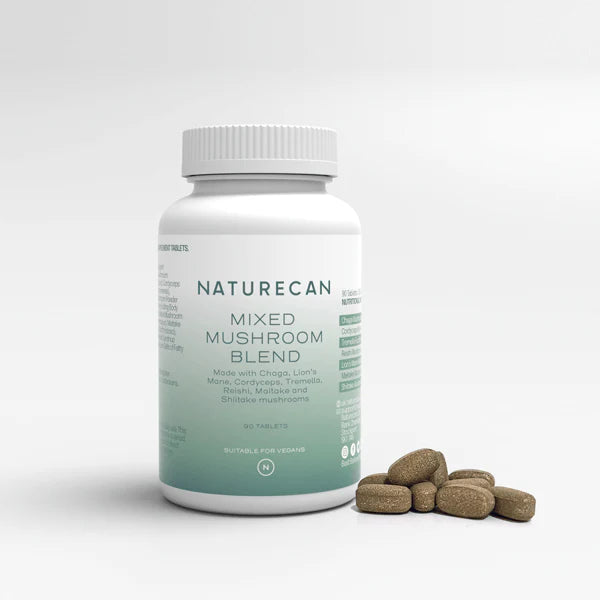
Product Overview
Introducing our brand new Lion's Mane and chaga mushroom supplement at Naturecan! If you want to take care of your general well-being, our Lion's Mane and chaga mushroom supplement are here to support you this season. Containing 7 natural mushrooms for an optimal effect, these tablets allow you to gain the potential benefits of our powerful mushroom extracts. This is why we believe we have the best Lion’s Mane at Naturecan.
What is our Lion's Mane and chaga mushroom supplement potentially good for?
Our Lion's Mane and chaga mushroom supplement contain 7 natural mushrooms, which have been studied with some results indicating potential benefits for each mushroom. The mushrooms in our tablets are Lion’s Mane, Reishi, Cordyceps, Chaga, Maitake, Tremella and Shiitake. This is why we believe we have the best Lion’s Mane supplement at Naturecan.
How to Choose the Right Lion's Mane Supplement
With the growing popularity of fresh lion's mane, the market is flooded with various supplements claiming to offer the best Lion’s Mane extract. So, how do you choose the best Lion’s Mane? Here are some pointers:
- Source: Ensure that the supplement is sourced from reputable farms that practise organic cultivation. It is also essential that the extract is taken from the fruiting body of the mushroom.
- Extraction Process: The method of extraction determines the potency of the supplement. Look for products that use a dual extraction process.
- Potency: Check the percentage of active compounds like hericenones and erinacines.
- Reviews: Always check reviews and testimonials to gauge the efficacy of the product.
Who Should Take lion's mane?
Fresh lion's mane consumption can be beneficial for various individuals seeking to enhance their overall well-being. Here are some groups who may benefit from taking Lion's Mane:
- Students and Professionals: Lion's Mane is known for its potential cognitive-enhancing properties. It may help with memory, focus, and concentration (1). Students and busy professionals looking for an extra mental edge can consider Lion's Mane for their everyday routine.
- Managing Stress: Chronic stress can take a toll on overall health. Lion's Mane contains compounds that may support stress management and promote a sense of calm. If you often experience stress or anxiety, Lion's Mane could be a valuable addition to your self-care routine (2).
- Individuals Seeking Immune Support: Lion's Mane has potential immune-boosting properties that can help strengthen the body's natural defence mechanisms. If you wish to support your immune system, Lion's Mane may be an excellent choice (3).

Who Shouldn’t Take Lion’s Mane?
Lion's mane is celebrated for its potential cognitive and neurological benefits. However, certain individuals should exercise caution or avoid its consumption:
- Individuals with mushroom allergies: Those allergic to mushrooms might also react to lion's mane.
- Pregnant or breastfeeding women: Due to a lack of research on its effects in these groups, it's advisable to avoid use.
- Those on medication for diabetes or blood clotting: Lion's mane may interact with these medications, potentially affecting blood sugar levels and blood clotting.
Consulting a healthcare provider before starting any new supplement, including lion's mane, is always recommended to ensure it's appropriate for your health condition.
How Long Does Lion's Mane Take to Work?
The effects of Lion's Mane can vary based on individual factors and the form in which it's consumed. While some users report feeling benefits within a few days, others might take weeks.
When considering how long Lion’s Mane takes to work, It's essential to note that consistent consumption and the quality of the supplement can influence the results. Research is ongoing, but there's evidence suggesting that certain natural compounds, like those found in Lion's Mane, can have positive effects on cognitive performance.
How much Lion's Mane is recommended to take daily?
How much lion's mane is right for me?The recommended daily Lion’s Mane dosage can vary depending on the individual and the form in which it is taken. However, a general guideline is to consume between 500mg to 3000mg of Lion's Mane extract per day.
It is always best to start with a lower dosage and gradually increase it over time to assess your body's response.
Lion’s Mane Dosage, Frequency, and Extracts
While the potential benefits of Lion's Mane are evident, how much lion's mane should one consume? The answer lies in the potency of the Lion’s Mane extract and the desired health outcomes. It's essential to follow recommended dosages, especially when starting.
Over time, one can adjust based on individual experiences and needs. The extraction process is crucial as it determines the concentration of bioactive compounds. Naturecan ensures a high-quality extraction process, making their Lion's Mane and chaga mushroom supplement and mushroom gummies potent and effective.

Recommended Lion's Mane Dosage: Finding the Right Amount
Finding the right Lion's Mane dosage depends on a few factors, including your overall health, desired benefits, and the form of lion's mane you choose.
As there is no established standard dosage, it's essential to start with a conservative amount and gradually increase if needed.
At Naturecan, we sell 2 supplements that contain Lion's Mane. Here are some general guidelines to find the best way to take Lion’s mane for you:
- Lion's Mane Gummies: Each Lion's Mane gummy typically contains a specific amount of Lion's Mane extract. It is advisable to follow the dosage instructions provided by the manufacturer.
As a general rule, start with 1-2 gummies per day and monitor how your body responds. Adjust the dosage based on your individual needs.
- Lion's Mane and chaga mushroom supplement Tablets: The Lion's Mane and chaga mushroom supplement tablets contain a blend of mushrooms, including Lion's Mane extract.
The recommended daily dosage may vary depending on the specific brand and formulation. Usually, 1-2 tablets per day are recommended. However, it is always advisable to consult the product packaging or your healthcare professional for precise dosage instructions.
Other forms of Lion’s Mane
Lion's Mane Powder: Lion's Mane powder is a popular form of Lion's Mane supplement as it allows for easy customisation of dosage. The recommended daily dosage of Lion's Mane powder typically ranges from 1 to 3 grams. However, it is important to note that individual responses may vary, and it's best to start with a lower dosage and gradually increase it as needed.
Does Lion's Mane dosage vary depending on age?
For adults, the recommended Lion’s Mane dosage typically ranges from 1000 mg to 3000 mg per day, depending on the individual's needs and desired effects. However, it is important to note that the optimal dosage may vary from person to person, so it is always advisable to start with a lower dose and gradually increase it if necessary.
When it comes to children and the elderly, it is crucial to consult with a healthcare professional before determining the appropriate Lion's Mane dosage. These age groups may require lower doses due to differences in metabolism and potential sensitivities. A healthcare professional can assess the individual's specific needs and provide guidance on the ideal dosage.
Furthermore, it is essential to choose a high-quality Lion's Mane from a reputable source to ensure safety and efficacy. This will help to guarantee that the dosage is accurate and that the product does not contain any harmful contaminants.

Is it safe to take a higher dose of Lion's Mane? Can I take too much lion's mane?
While it is generally considered safe, taking a higher Lion’s Mane dosage should be approached with caution and under the guidance of a healthcare professional.
Lion's Mane is known for its potential neuroprotective and cognitive-enhancing properties. It contains compounds called erinacines and hericenones, which may help stimulate nerve growth and support brain function. Research suggests that Lion's Mane may have potential benefits for conditions such as Alzheimer's disease, Parkinson's disease, and other neurological disorders.
Although research is still in its infancy in these areas.
However, as with most supplements, it is important to follow recommended Lion’s Mane dosages. Taking a higher dose of Lion's Mane may lead to adverse effects or interactions with other medications. It is advisable to consult with a healthcare professional, such as a doctor or a registered herbalist, before increasing the dosage.
Furthermore, individual tolerance to Lion's Mane may vary. Some people may experience gastrointestinal issues, such as stomach upset or diarrhoea, when taking higher doses. It is recommended to start with a lower dose and gradually increase it if needed while closely monitoring any potential side effects.
Does Lion's Mane dosage vary depending on age?
For adults, the recommended Lion’s Mane dosage typically ranges from 1000 mg to 3000 mg per day, depending on the individual's needs and desired effects. However, it is important to note that the optimal dosage may vary from person to person, so it is always advisable to start with a lower dose and gradually increase it if necessary.
When it comes to children and the elderly, it is crucial to consult with a healthcare professional before determining the appropriate Lion's Mane dosage. These age groups may require lower doses due to differences in metabolism and potential sensitivities. A healthcare professional can assess the individual's specific needs and provide guidance on the ideal dosage.
Furthermore, it is essential to choose a high-quality Lion's Mane supplement from a reputable source to ensure safety and efficacy. This will help to guarantee that the dosage is accurate and that the product does not contain any harmful contaminants.
Is it safe to take a higher dose of Lion's Mane?
While it is generally considered safe, taking a higher Lion’s Mane dosage should be approached with caution and under the guidance of a healthcare professional.
Lion's Mane is known for its potential neuroprotective and cognitive-enhancing properties. It contains compounds called erinacines and hericenones, which may help stimulate nerve growth and support brain function. Research suggests that Lion's Mane may have potential benefits for conditions such as Alzheimer's disease, Parkinson's disease, and other neurological disorders. Although research is still in its infancy in these areas.
However, as with most supplements, it is important to follow recommended Lion’s Mane dosages. Taking a higher dose of Lion's Mane may lead to adverse effects or interactions with other medications. It is advisable to consult with a healthcare professional, such as a doctor or a registered herbalist, before increasing the dosage.

Furthermore, individual tolerance to Lion's Mane may vary. Some people may experience gastrointestinal issues, such as stomach upset or diarrhoea, when taking higher doses. It is recommended to start with a lower dose and gradually increase it if needed while closely monitoring any potential side effects.
Best Time to Take Lion's Mane
While there is no strict rule regarding the best time to take Lion's Mane, you can consider these suggestions:
- Morning: Taking a Lion's Mane in the morning can provide a cognitive boost throughout the day. It can enhance focus, mental clarity, and productivity, making it an ideal choice for students and professionals.
- Before Studying or Work Sessions: If you have an important study session or work project coming up, taking Lion's Mane about 30 minutes before can help improve cognitive performance and concentration.
- During or After Meals: Lion's Mane can be taken with or after meals to aid absorption and minimise any potential digestive discomfort. This timing can also help regulate blood sugar levels.
- As part of the Nighttime Routine: Some individuals find that taking Lion's Mane in the evening promotes relaxation and better sleep quality. Experiment with timing to determine what works best for you.
Lion’s Mane vs Ashwagandha: Comparing Lion's Mane with Other Supplements
In the vast world of natural supplements, each has its unique set of benefits and uses. While Lion's Mane stands out for its cognitive and neurological advantages, how does it fare when compared to other popular supplements like ashwagandha?
a. Lion's Mane: The Brain Booster
Lion's Mane is primarily known for its neuroprotective properties. Its bioactive compounds have been shown to stimulate the production of nerve growth factor (NGF), which plays a crucial role in maintaining and organising neurons. This makes Lion's Mane particularly beneficial for cognitive health, memory enhancement, and nerve repair.
b. Ashwagandha: The Stress Reliever
Ashwagandha, also known as Indian ginseng, is a revered herb in Ayurvedic medicine. It's best known for its adaptogenic properties, meaning it helps the body adapt to stress. Ashwagandha has been shown to reduce cortisol levels, combat anxiety, and improve sleep patterns. While it also offers cognitive benefits, its primary strength lies in balancing hormones and reducing stress.
Interactions with Medications
Now, like many natural substances, Lion's Mane supplements, like our Lion's Mane and chaga mushroom supplement and Mushroom Gummies, do have potential interactions with both over-the-counter and prescription medications.
Whether you're taking a simple daily multivitamin or a stronger medicinal drug for a chronic condition, integrating Lion's Mane into your regimen could impact the medication's effectiveness.
Lion's Mane, in combination with other drugs -- prescribed or OTC -- acts in ways we do not fully understand yet. As such, caution must be exercised and seeking professional advice is, thus, all the more critical, especially in such instances.
Precautions for Medication Users
Considering the incorporation of Lion's Mane into your diet or supplement plan? As a medication user, it's essential to understand potential risk factors. This functional mushroom may interact with specific drugs, altering their efficacy or inducing adverse effects.

It’s of utmost importance that those on medication weigh up the prospects thoroughly before beginning a Lion's Mane regimen. Unforeseen enzymatic interactions could alter drug metabolization, adding an element of risk. Consulting with a healthcare professional should be your first step.
Quality and Safety of Lion's Mane Supplements
Ensuring the safety of Lion's Mane supplements greatly depends on the quality control standards employed. An in-depth knowledge of the respective measures helps assess the potential health risks and efficacy.
Various factors play their part in affecting the safety of these supplements – among the chief ones are the sourcing practices, manufacturing processes, and the exact composition of the product.
Naturecan offers an extensive and exclusive range of quality CBD products and supplements. With websites live in over 40 countries worldwide, we use our global reach to deliver the potential benefits of CBD to a growing customer base.
All of Naturecan’s products are created using industry-leading technology and undergo rigorous testing practices with third parties in order to ensure product quality, customer safety and supply chain transparency.
Choosing High-Quality Lion's Mane Products
Opting for the best requires a keen eye for detail. Check with reputed sellers, and look for organically grown and lab-tested products when you’re examining Lion's Mane products for purchase.
By scrutinising the quality, you protect your investment. Key elements to consider are the manufacturing methods, the expiration date, and the presence of other ingredients. A well-established, ethics-driven brand often denotes quality.
transparency.
Third-Party Testing and Certification
Having confidence in the quality of a Lion's Mane product is crucial, and third-party testing serves this purpose. This independent analysis can identify any harmful adulterants or inaccuracies in potency claims, providing users with assurance.
Certification bodies play a pivotal role in validating Lion's Mane safety. Through rigorous testing and verification processes, these organisations confer certifications that can greatly boost consumer trust in a product's safety and efficacy.
Proper Dosage and Administration
Representative research shows that a typical Lion's Mane dosage can range from 500 to 3000 milligrams daily, dividing it into 2-3 doses. However, it's important to get personalised advice as one's reaction to this mushroom can differ, ensuring optimal benefits without risks.
Overdosing can lead to discomforting symptoms like an upset stomach or rash. So, while Lion's Mane has recorded minimal side effects, you should adhere strictly to recommended dosage protocols to avoid any health discrepancies.
Lion's Mane's suggested intake can be before meals for better absorption. This versatile supplement also comes in various forms like powder, capsule, or liquid, therefore providing flexibility in terms of administration methods.
The ideal time for Lion's Mane supplementation is morning or early afternoon, as it is a natural nootropic. Taking it late in the evening might affect sleep patterns due to its potential energising effects.

Consulting with a Healthcare Professional
Adding Lion's Mane into your regimen should be done under the guidance of a healthcare provider. This ensures balanced benefits while mitigating potential side effects or interactions with other treatments.
Doctors can offer perspectives about Lion's Mane based on current research, its suitability for your health profile, and the medical community's consensus on its efficacy and safety.
Discussing Lion's Mane with Your Healthcare Provider
Approaching your healthcare provider with primary concerns is crucial. Specifically, ask about potential interactions with current medications, possible side effects, and the proper dosages recommended for your unique needs. This dialogue ensures you're fully informed about all aspects of Lion's Mane before diving in.
Healthcare providers frequently answer safety questions but note that each response varies according to individual health conditions. Some might see improvements on cognitive functions or sleep quality, while those with allergies may react differently. Make sure your queries convey these personalised concerns.
Specialists often report patients scanning through web information, assigning fear or hope based on bias. They stress the importance of consultation as every individual responds differently, and past study results might not always reflect each person's experience.
Doctors generally advocate a cautious approach when incorporating new elements like Lion's Mane into one's regimen. Queries on details of lifelong-term use, precise dosage, and effect on pre-existing conditions provide an overall and clearer understanding of Lion's Mane safety.
Healthcare Professionals' Perspective on Lion's Mane
Many medical professionals vouch for the potential benefits. The mushroom's neuroprotective attributes have especially caught the attention of neurologists, leading to its increasing popularity in their clinical practice.
Clinical insights reveal the therapeutic potential of this fascinating mushroom. This is not just limited to its neuroprotective benefits but also to its potential to support immune health, cardiovascular health, and gastric function.
Can Lion's mane mushroom cause addiction or dependence?
One common concern among individuals exploring new treatments is the possibility of addiction or dependence. Currently, there is no evidence to suggest that it can cause addiction or dependence.
This natural mushroom has been used in traditional medicine for centuries, particularly in Asian cultures. It is also widely consumed as a food source in many countries. There have been no reported cases of addiction or dependence associated with the mushroom.
Furthermore, the mushroom does not contain any addictive substances such as opioids or psychoactive compounds. It is primarily composed of bioactive compounds, including polysaccharides and hericenones, which are believed to contribute to its potential health benefits.

Adding Lion's Mane into Your Diet
Apart from supplements, the mushroom can be incorporated into your diet in various ways. For example, it can be sautéed, grilled, or used in soups.
They have a seafood-like taste, often compared to crab or lobster. For those who prefer a sweeter intake, Naturecan's gummies are a perfect choice.
Embracing the Power of Nature with Lion's Mane
In an era where synthetic drugs and fast-paced lifestyles dominate, turning to nature for healing and wellness can be transformative.
Our mushroom gummies and supplement, offers a blend of potential cognitive, neurological, and overall health benefits, making it a must-have in everyone's wellness arsenal.
With Naturecan's commitment to quality and purity, one can be assured of harnessing the full potential of this magical mushroom.
